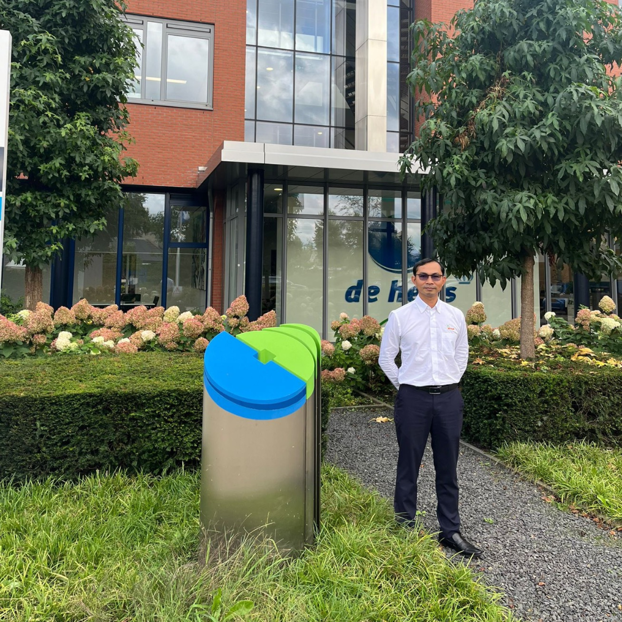From vision to reality: Alan’s role in De Heus’s India greenfield project
Alan van An plays an important role in shaping the company's future. As Group project manager he manages a series of significant investment initiatives that drive De Heus’s growth and innovation globally.

Building a strong foundation
Alan began his journey with De Heus in 2014, initially serving as Plant Manager in Vietnam. With a background in business management and foreign trade, he brought invaluable experience to the role. After his time as Plant Manager in Vietnam, where he honed his operational management skills, he moved to Myanmar as Production Manager. This was followed by a position as Capex Project Manager for Asia, and he was recently promoted to Group Project Manager. These diverse experiences have provided him with a deep understanding of the complex dynamics within constructing and running production plants in the animal feed industry.
The journey to India
In October 2016, Alan became involved in De Heus’s India project. Initially, his role focused on finding a suitable feed mill for rent and setting up operations. What began as a preliminary phase evolved into an ambitious greenfield project that officially commenced in the second quarter of 2023. This phase included land acquisition, factory design, and obtaining the necessary permits. The challenge was not just to establish a new factory but to integrate it into a rapidly evolving market.
The role of the project manager
As the Project Manager, Alan plays a crucial role in this venture. His responsibilities span the entire project lifecycle—from conceptualization and approval to execution and final handover to the operations team. Every stage requires meticulous planning and a thorough understanding of both technical and strategic aspects of the project.
Motivation behind the investment in India
The decision to invest in India was driven by several key factors. India’s increasing protein consumption, coupled with rising GDP and a large population, presents significant opportunities. Furthermore, animal feed production in India remains largely manual, which presents De Heus with a chance to introduce new technologies and automation, enhancing both efficiency and local industry development.
Applying lessons learned
In working on the India project, Alan brings insights from previous projects but recognizes that each market has its unique characteristics. What worked in other regions may need to be adapted to meet local needs and expectations. This requires a continuous evaluation of how best to integrate and adapt his knowledge and experiences to the specific conditions in India.
Challenges and insights
Throughout the Greenfield project in India, Alan has faced various challenges, including differences in working methods, cultural variations, and professional standards. Despite these challenges, much of what was encountered was anticipated due to De Heus’s extensive experience in India, allowing for thorough planning and preparation. This experience has helped the team focus on sustainable production methods from the start, addressing logistical data monitoring, compliance with supplier codes, and environmental impact reduction. Additionally, they are working on solutions for waste management, recycling, and climate resilience, tackling issues like polypropylene bag processing and handling extreme temperatures and flooding.
Factory design and local adaptation
The design of the new factory in India reflects De Heus’s core values. Rather than simply following market trends, the design focuses on delivering high-quality products that are recognized globally. The aim is to create a facility that not only meets local needs but also upholds the high standards of De Heus worldwide.
Health and safety standards
Health, Safety, and Environment (HSE) standards are always a top priority for De Heus. During both the construction and operational phases of the factory, local HSE regulations are adhered to as a minimum. However, De Heus implements its own higher HSE standards, ensuring that safety and well-being are maintained at the highest level.